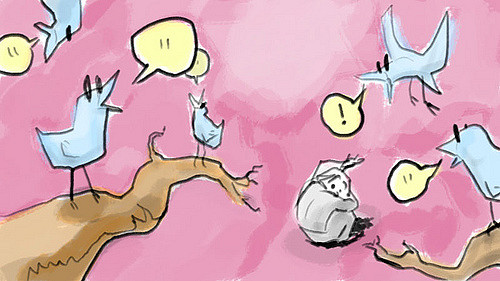 POLICY
POLICY
 POLICY
POLICY
 POLICY
POLICY
Twitter Inc. and Chief Executive Jack Dorsey made headlines this week after finally coming down on conspiracy theorist Alex Jones, giving him a seven-day “timeout” when Jones entreated his readers to get their “battle rifles” ready to fight the mainstream media.
Unlike some of the big names in Silicon Valley, Twitter’s suspension is not an all-out ban on Jones’ mostly blustery, darkly paranoid content. Perhaps it shows Twitter’s tolerance for free speech, the platform’s stated principles and integrity, or perhaps the suspension is just the first bolt unscrewed on the trapdoor that will inevitably open.
Dorsey had previously said Twitter won’t give into pressure, but in this case the pressure might be coming from many areas. There may also be peer pressure, given Google Inc., Facebook Inc., Apple Inc. and more tech giants that condemned Jones for the same reasons in the same time span.
Even well-meaning detractors of Jones are worried that Silicon Valley might be going too far in regulating speech, holding fast to one, correct ideology, in line with Orwellian fears of a technological totalitarianism.
Dorsey talked about this somewhat in an interview Wednesday with the Washington Post’s Elizabeth Dwoskin. Dorsey said he wants to crack down on hate speech, bots that pose as humans by labeling them as bots, false news – including conspiracy theories – but also limit “echo chambers.” He still wants diversity, he said, but with caveats.
“The most important thing that we can do is we look at the incentives that we’re building into our product,” Dorsey said. “Because they do express a point of view of what we want people to do — and I don’t think they are correct anymore.”
Twitter has already cracked down on bots and removed millions of automated accounts, while the company is employing algorithms to improve how it finds hate speech and harassment. The question has been how much to moderate, and Twitter came to a decision in line with Richard Rorty’s philosophy: How much real-world harm does it cause?
Could Jones’ battle rifle metaphor lead to real-world violence? Will people take up arms when roused by perhaps a sea of troubles based on falsity and paranoia? It seems Twitter thinks Jones went too far, but there will be pushback given that Jones perhaps wasn’t being literal.
Dorsey said Twitter’s original incentives haven’t changed, adding that the goal was not to make a lot of money but “to nudge people to interact and keep them engaged.” But he said Twitter policy can be stale and a new approach has to be taken in how the platform is moderated.
One thing, he said, is to give more context around a tweet. Dorsey gave the example of a parody account saying something controversial and people retweeting it tens of thousands of times. It then becomes news. Adding some context, he said, might help people to “make judgments for themselves.”
THANK YOU